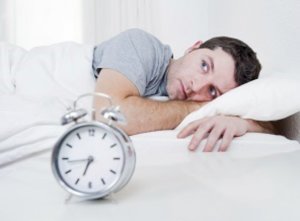Share this post!
Why Sleep is Important and Tips for a Better Sleep
In this world that is becoming busier and busier, it is that much more important to get a goodnight’s rest. Sleep is an important physiological process that allows your body to recover from the previous day.
When you get less than 6 hours of sleep you may notice:
INCREASED:
- Tiredness
- Forgetfulness
- Irritability
- Weight
DECREASED:
- Concentration
- Job Peformance
- Relationship happiness
- Immune system function
Getting less than 6 hours of sleep on a continuous basis makes you:
- 48% more likely to die of heart disease
- 83% more likely to have high blood pressure (which increases risk of heart attack and stroke) in people over 65
Here are some tips for a better nights sleep:
- Maintain a regular sleep routine
- Go to bed at the same time and wake up at the same time every day (even the weekend)
- Get ready for bed in the same way each night, do something you find relaxing before you go to sleep (stretch, meditate, shower or have a warm drink (non-caffeinated)).
- Avoid naps if possible
- Within a 24-hour period a person only needs a certain amount of sleep, no more. Taking naps decreases the amount of sleep needed the next night which can lead to trouble falling asleep. This can lead to further worries such as insomnia and sleep deprivation.
- Get out of Bed if you cannot fall asleep
- Falling asleep should not take longer than ten minutes. If you notice you are unable to fall asleep, get out of bed.
- Use your bed just for sleeping
- Watch TV or read in a couch or a chair, not in your bed.
- Be aware of chemicals that could inhibit initiation of sleep
- Caffeine (coffee, tea, pop, chocolate), nicotine, alcohol and some medications can cause fragmented sleep and difficulty initiating sleep.
- Stay Active!
- Exercise promotes continuous sleep. Try to exercise earlier in the day and do not do rigorous exercise just before bed.
- Make sure your bedroom is fit for a goodnight’s rest
- A cooler room promotes sleep (about 15-18 degrees Celsius). Make sure the room is as dark as possible (try blackout drapes and remove electronic lights such as computers or phones from the bedroom).
- Consult your health care professional
- If you notice increased tiredness or trouble sleeping it is important to talk to a health professional. There could be an underlying health-related cause that needs additional attention
As always, we encourage you to ask us any questions and/or leave comments. To contact us click here.
References
- Dean DA 2nd, Goldberger AL, Mueller R, Kim M, Rueschman M, Mobley D, Sahoo SS, Jayapandian CP, Cui L, Morrical MG, Surovec S, Zhang GQ, Redline S. Scaling Up Scientific Discovery in Sleep Medicine: The National Sleep Research Resource. Sleep. 2016 May 1;39(5):1151-64. doi: 10.5665/sleep.5774. Review. PubMed PMID: 27070134; PubMed Central PMCID: PMC4835314.
- Zhang GQ, Cui L, Mueller R, Tao S, Kim M, Rueschman M, Mariani S, Mobley D, Redline S. The National Sleep Research Resource: towards a sleep data commons. J Am Med Inform Assoc. 2018 May 31. doi: 10.1093/jamia/ocy064. [Epub ahead of print] PubMed PMID: 29860441.
- Quan SF, Howard BV, Iber C, Kiley JP, Nieto FJ, O’Connor GT, Rapoport DM, Redline S, Robbins J, Samet JM, Wahl PW. The Sleep Heart Health Study: design, rationale, and methods. Sleep. 1997 Dec;20(12):1077-85. PubMed PMID: 9493915.
- Redline S, Sanders MH, Lind BK, Quan SF, Iber C, Gottlieb DJ, Bonekat WH, Rapoport DM, Smith PL, Kiley JP. Methods for obtaining and analyzing unattended polysomnography data for a multicenter study. Sleep Heart Health Research Group. Sleep. 1998 Nov 1;21(7):759-67. PubMed PMID: 11300121

